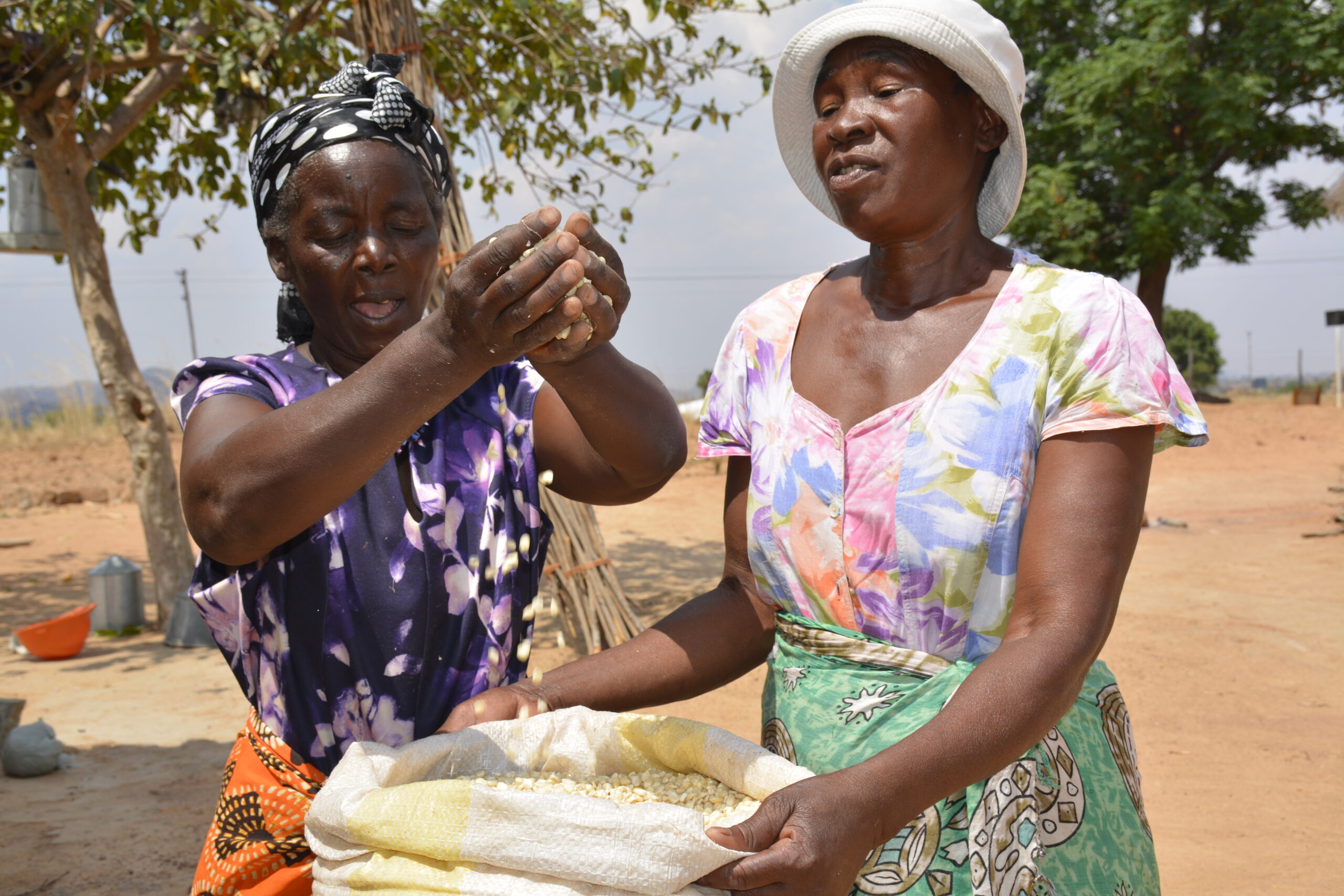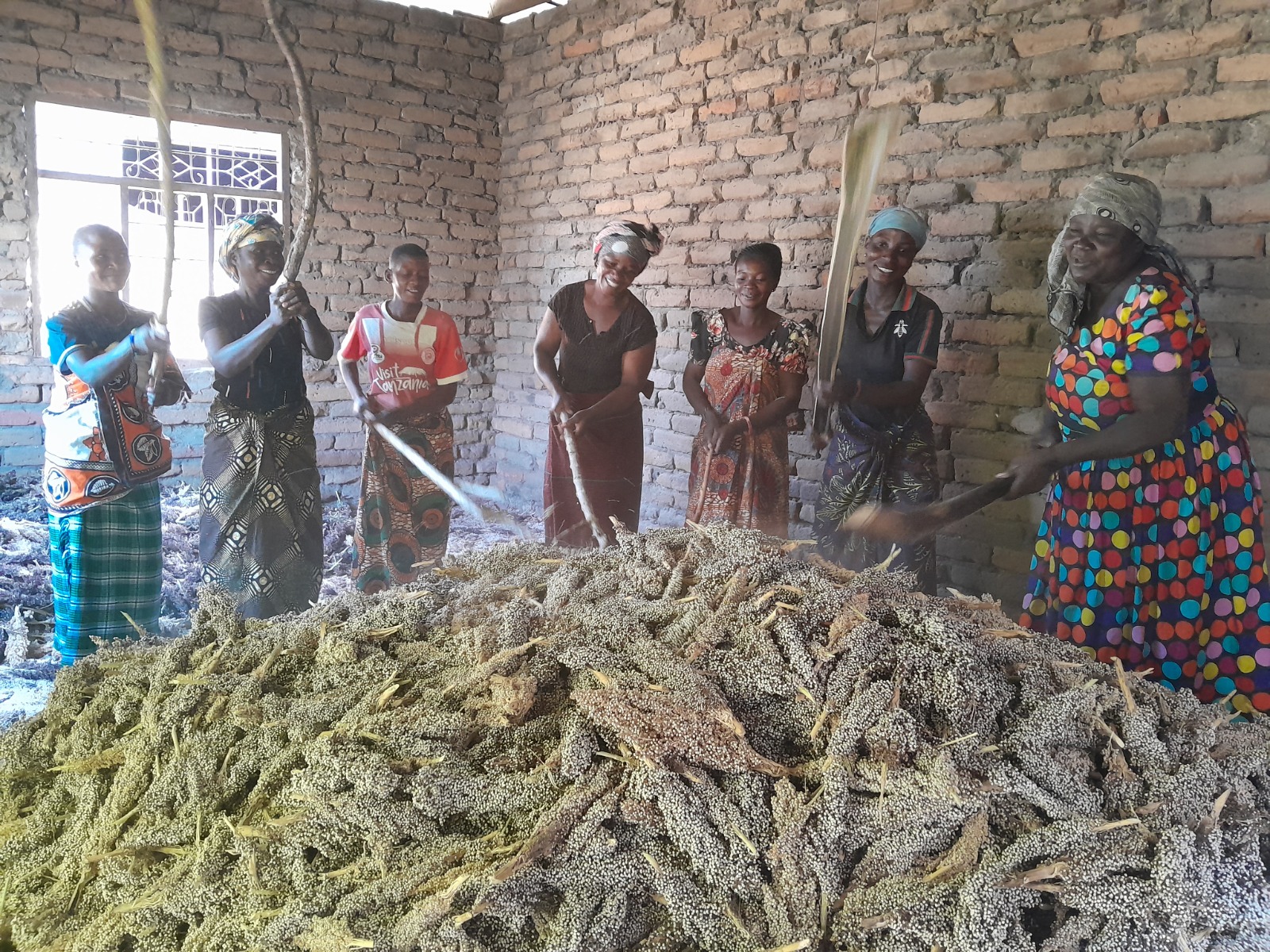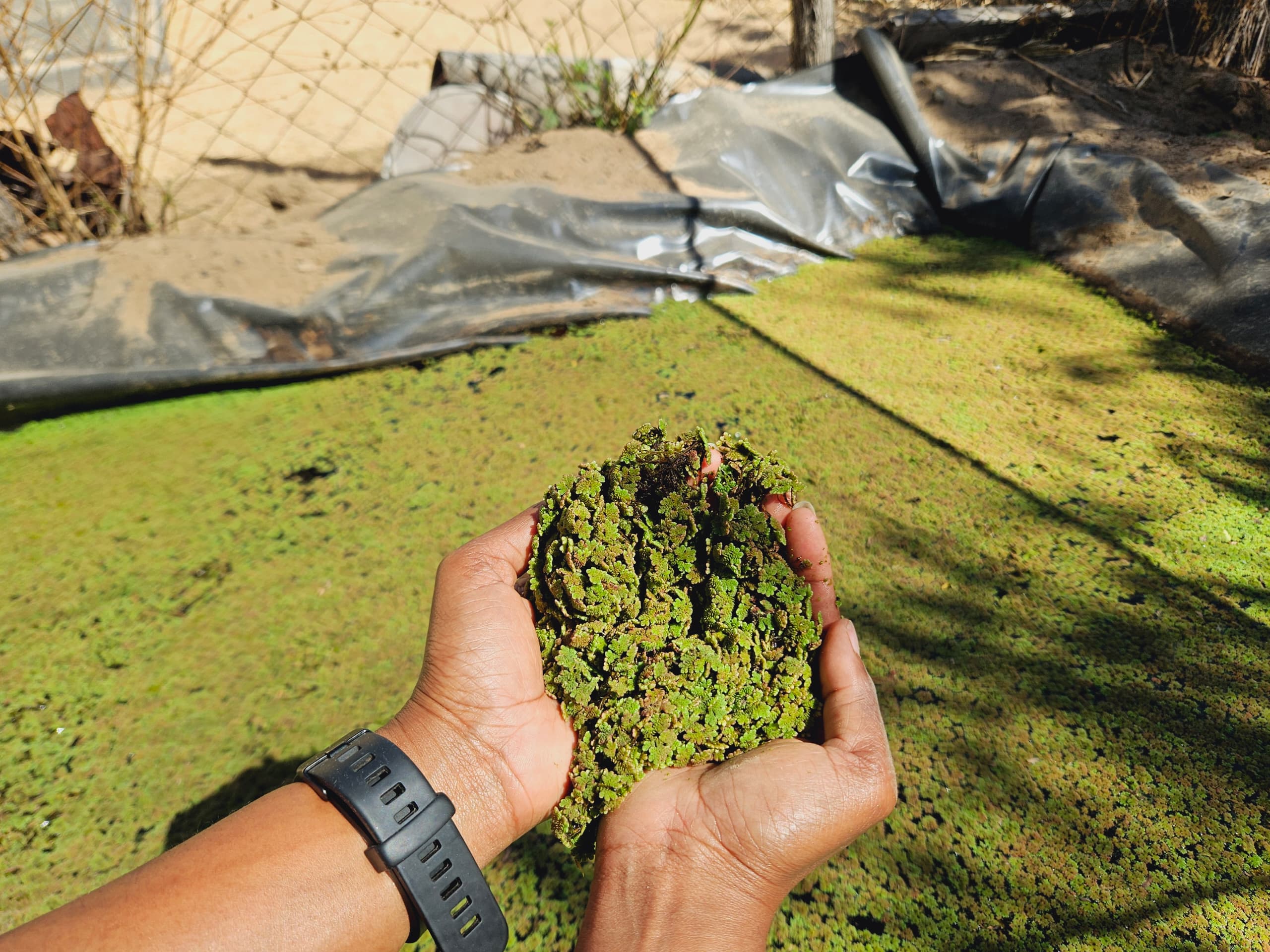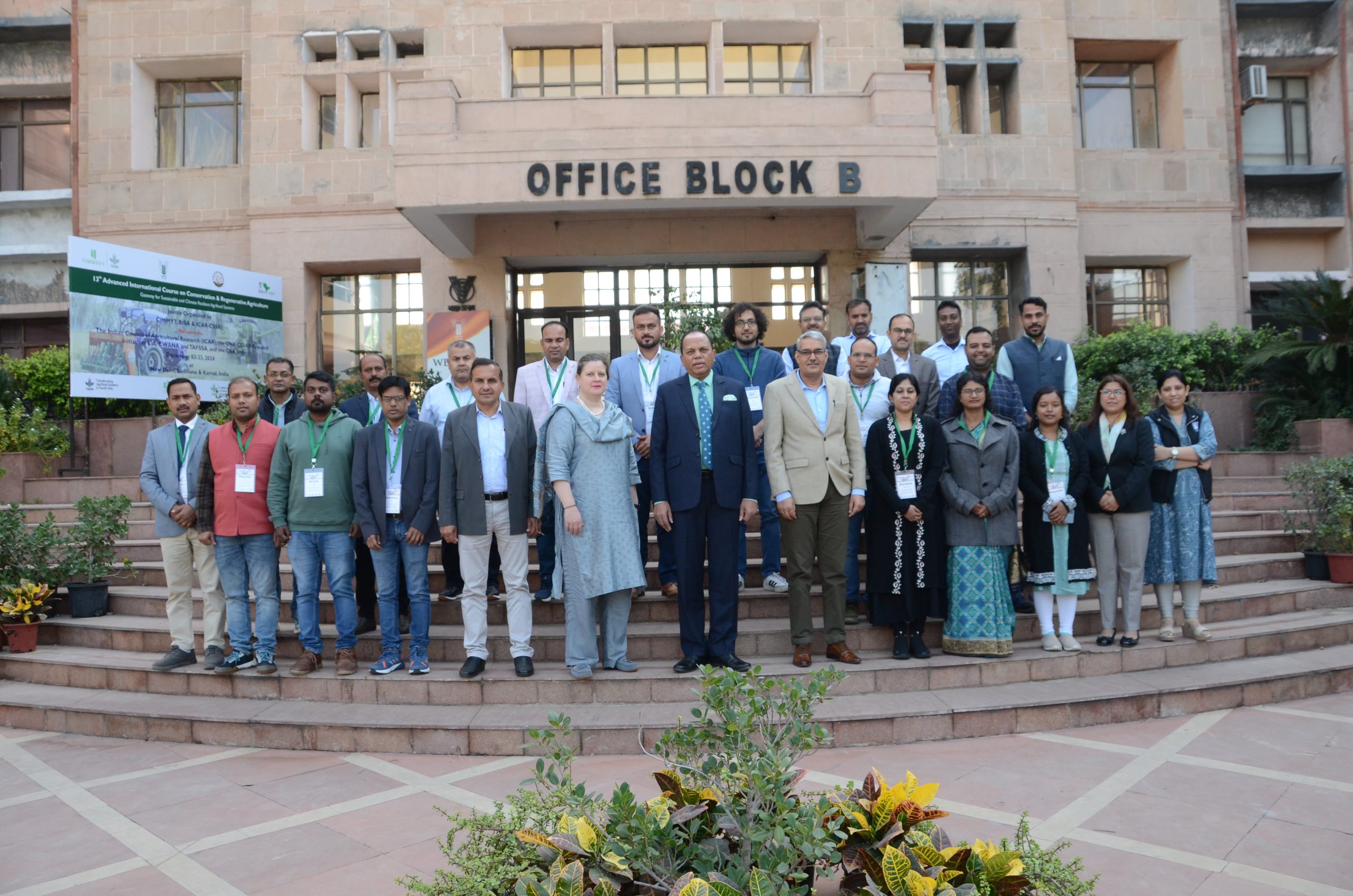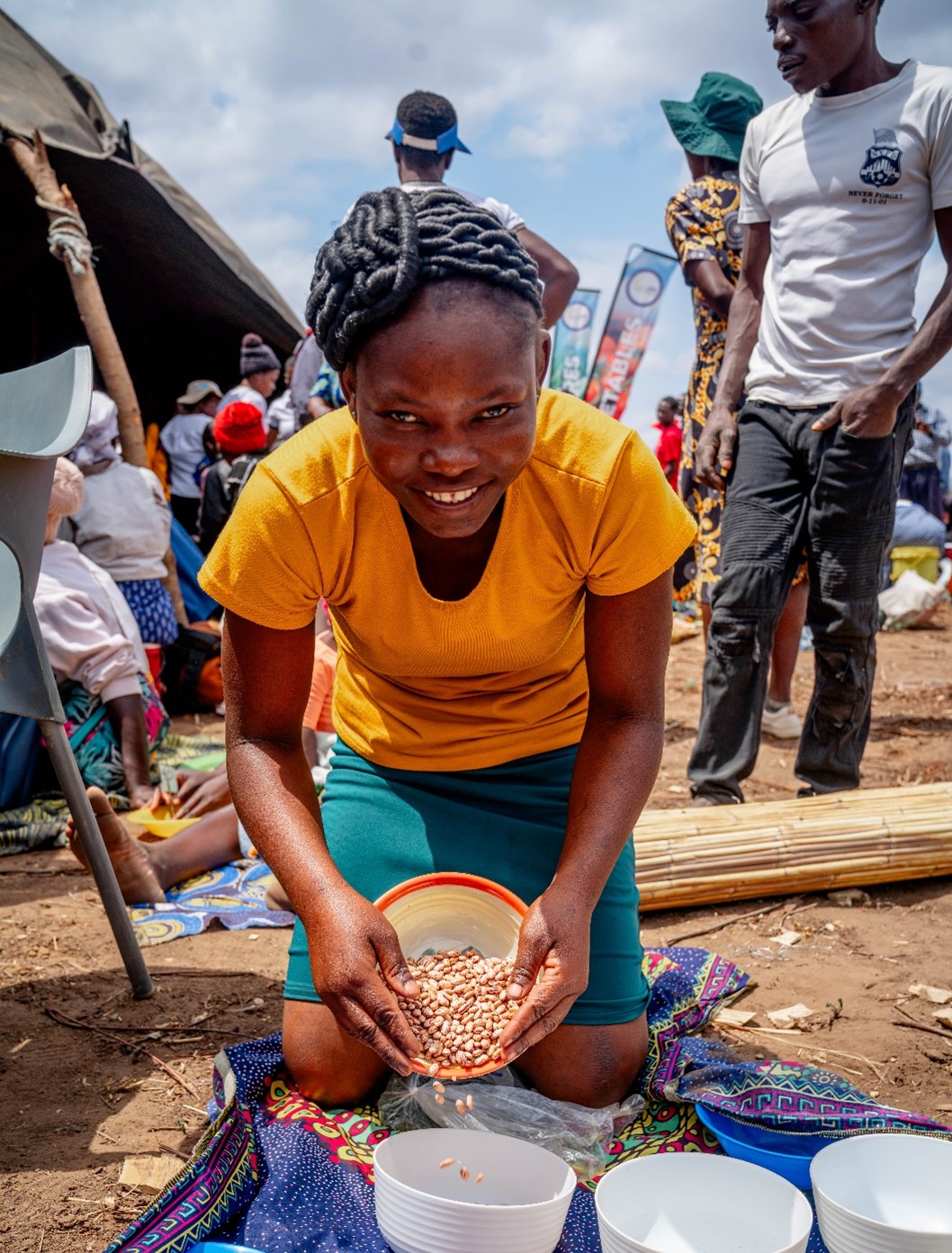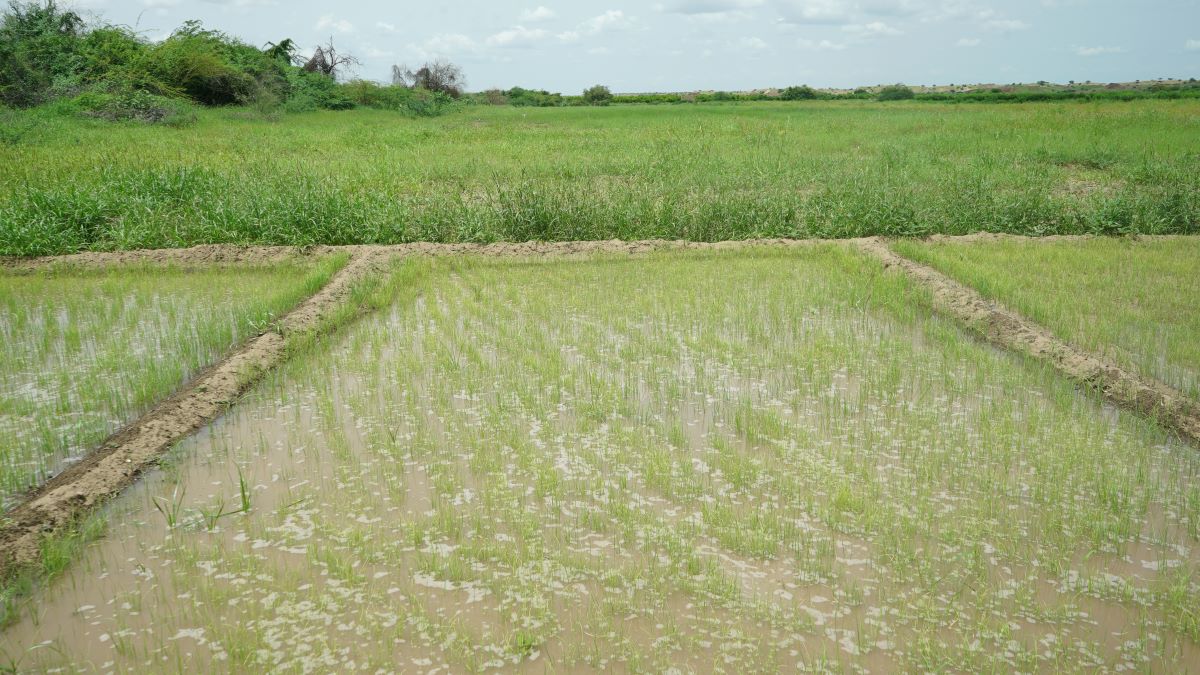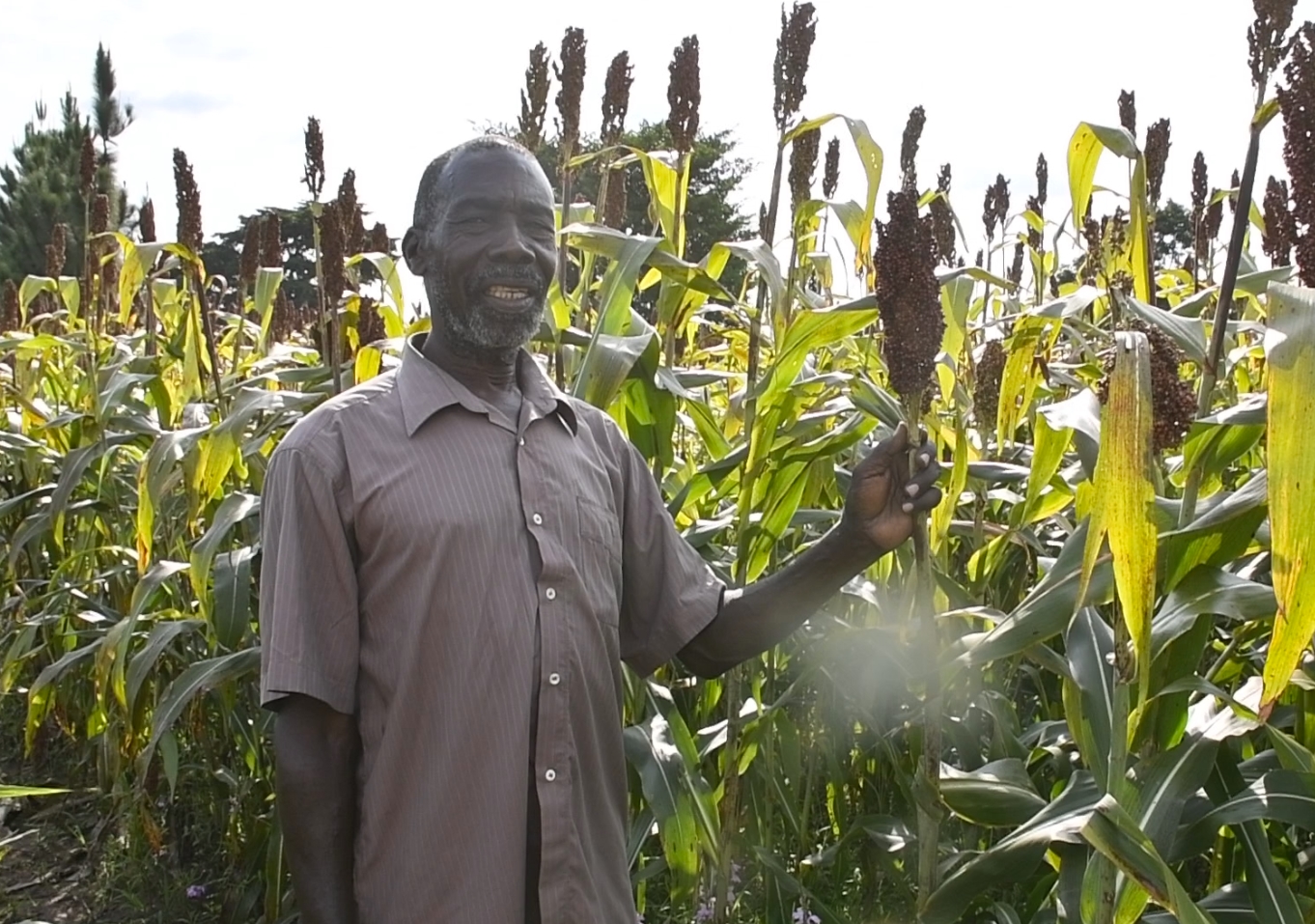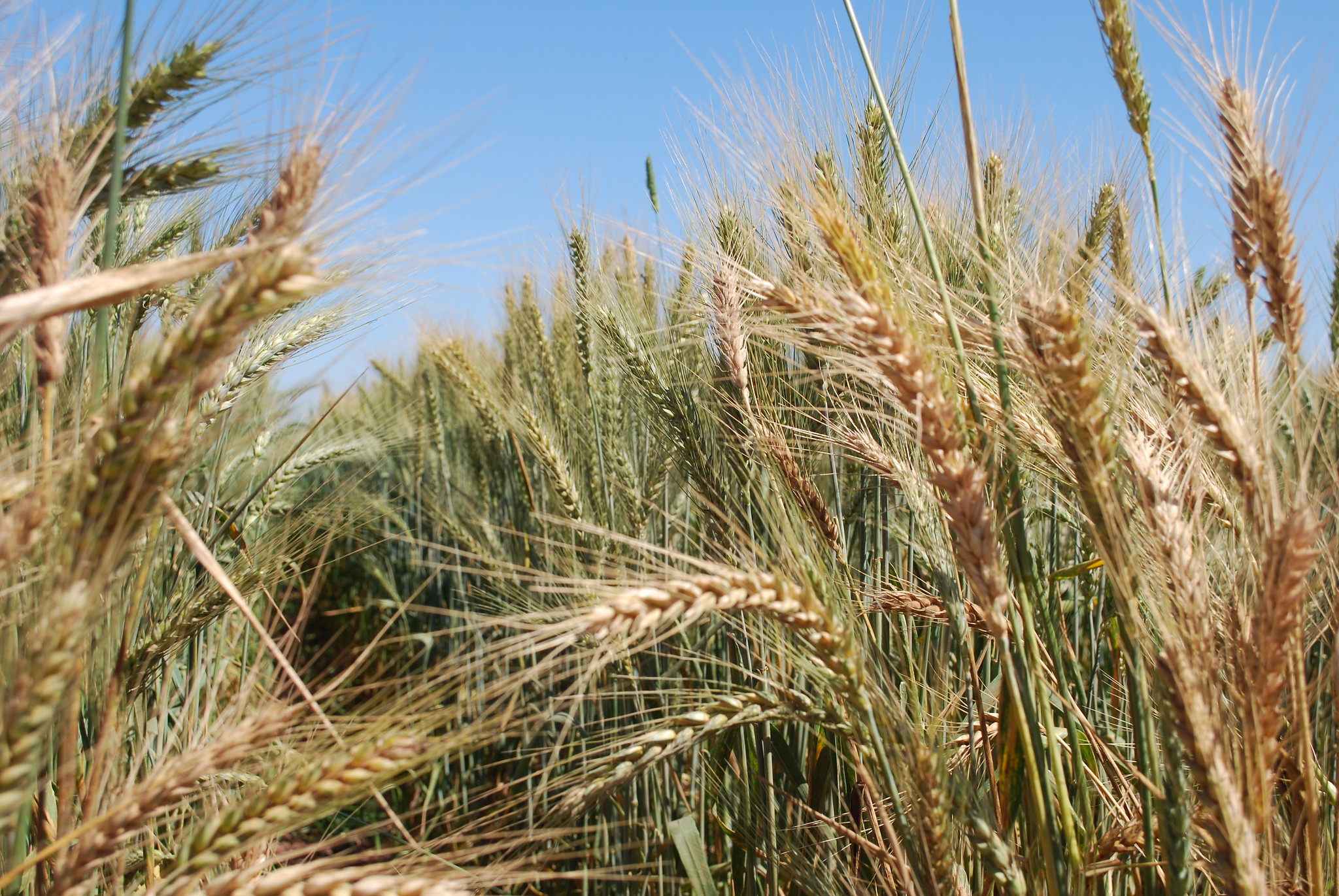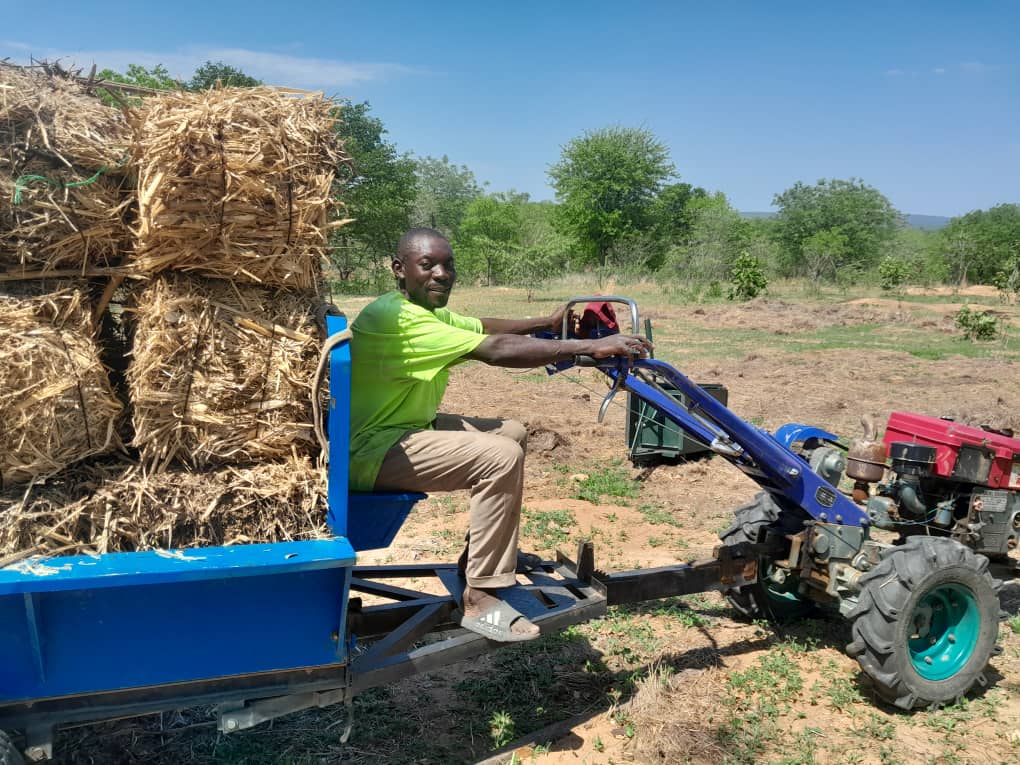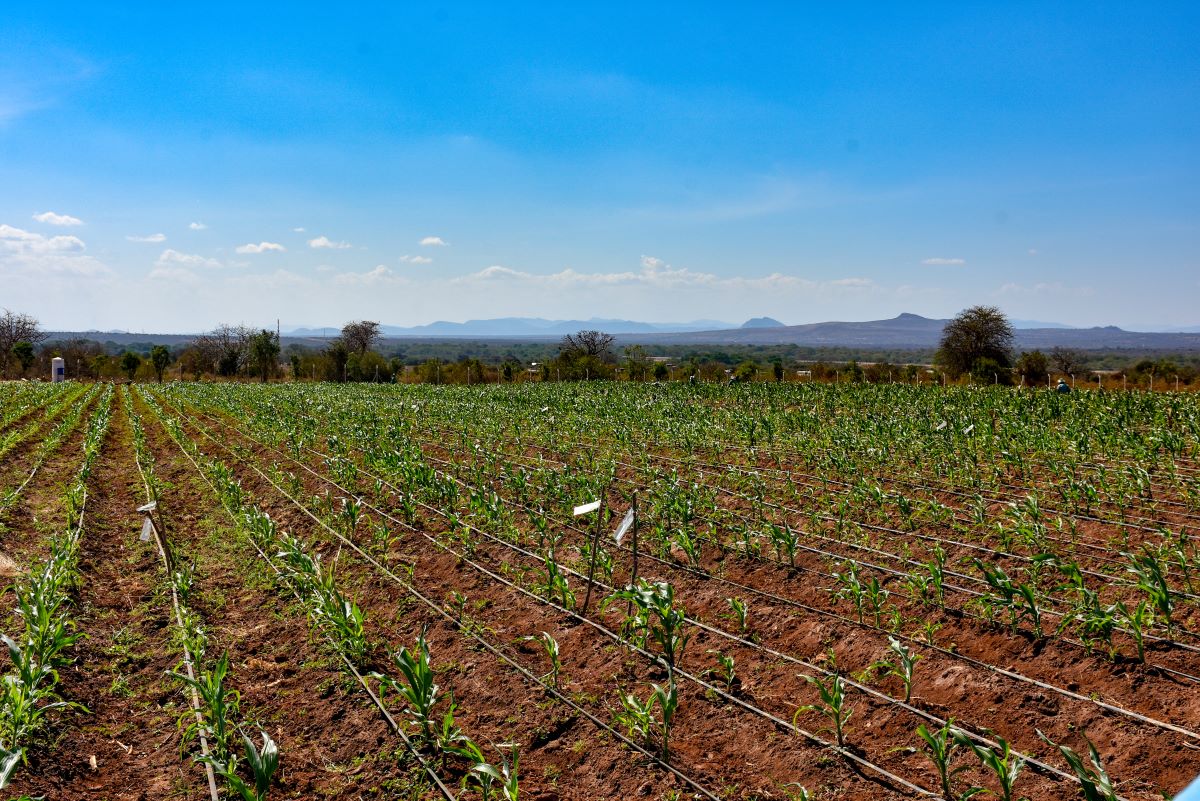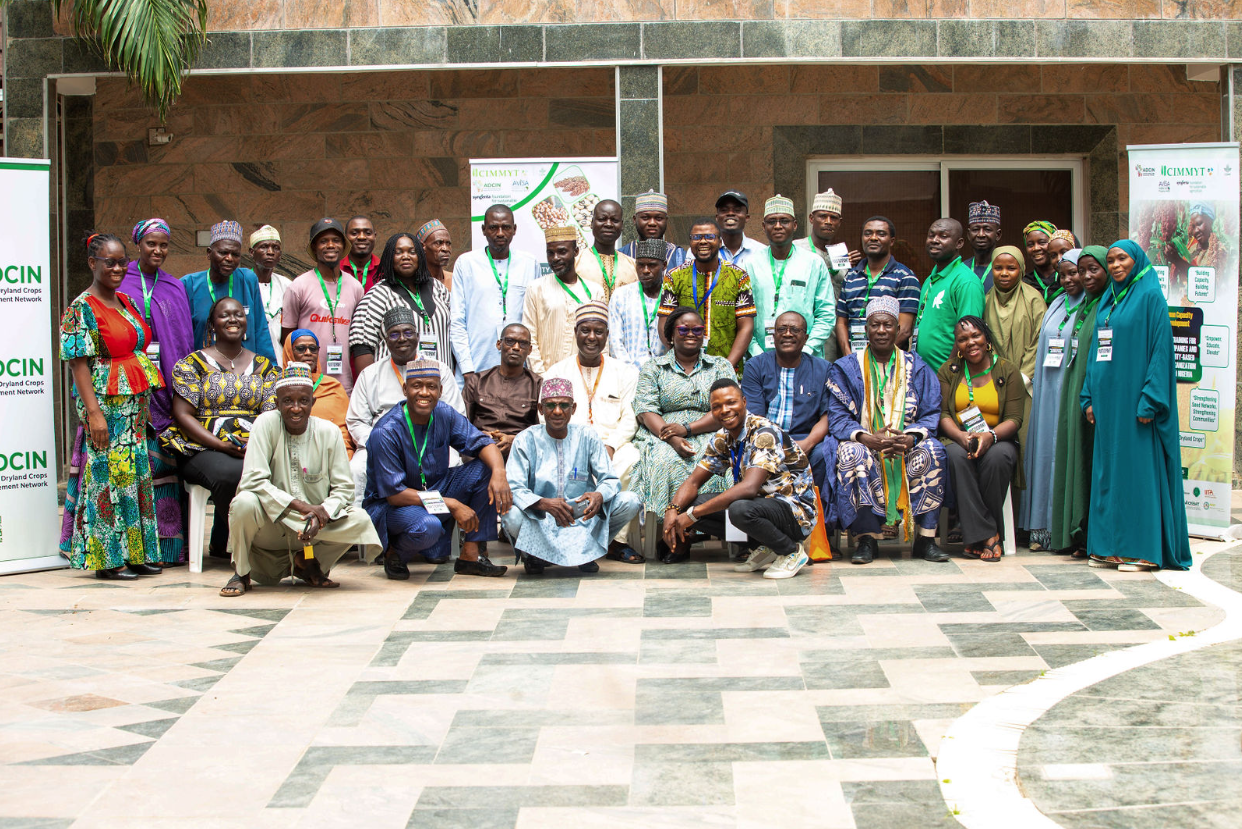Capacity development
CIMMYT training courses play a critical role in helping international researchers meet national food security and resource conservation goals. By sharing knowledge to build communities of agricultural knowledge in less developed countries, CIMMYT empowers researchers to aid farmers. In turn, these farmers help ensure sustainable food security. In contrast to formal academic training in plant breeding and agronomy, CIMMYT training activities are hands-on and highly specialized. Trainees from Africa, Asia and Latin America benefit from the data assembled and handled in a global research program. Alumni of CIMMYT courses often become a significant force for agricultural change in their countries.
How more inclusive maize breeding can yield better outcomes for women farmers in Zimbabwe
 Capacity development
Capacity development
CIMMYT strengthens maize breeding in Zimbabwe through inclusive on-farm trials, farmer training, and seed innovations to benefit all farmers
CIMMYT donates agricultural implements to Gwebi
 Capacity development
Capacity development
Source: The Herald ()
CIMMYT is modernizing breeding in Zimbabwe with machinery to enhance research and climate-resilient maize production
How Ivuna women farmers are transforming their lives through seed production
 Capacity development
Capacity development
In Ivuna Village, Tanzania, a determined group of women leveraged Vikoba loans, mentorship, and improved sorghum seeds to transform their livelihoods, boost household incomes, and inspire others in their community
Bridging the seed gap in Kenya with standard certified seed
 Capacity development
Capacity development
Kenya’s Standard Certified Seed (SCS) initiative improves seed access, supports dryland crops, and strengthens climate-resilient agriculture through certification and capacity development
Exploring Azolla Farming as a Sustainable Feed Source for Poultry in Murehwa, Zimbabwe
 Capacity development
Capacity development
Azolla is enhancing sustainable poultry farming in Murehwa, Zimbabwe, through its integration into CIMMYT-led Agroecology Initiative efforts
Advanced Training in Conservation Agriculture: Fostering Sustainable Agronomic Systems
 Capacity development
Capacity development
CIMMYT’s training on Conservation and Regenerative Agriculture empowered participants with climate-resilient farming practices to strengthen agrifood systems
CIMMYT visit celebrates strategic scientific partnership
 Capacity development
Capacity development
Source: John Innes Centre ()
CIMMYT and the John Innes Centre are advancing global wheat research through a strategic partnership focused on innovative solutions for disease resistance, productivity, and sustainable food systems
Promoting mechanized farming technologies in Mbire and Murewa through the Agroecology Fairs
 Capacity development
Capacity development
Scaling access to mechanization through local service providers and innovative financing models, CIMMYT is empowering smallholder farmers in Zimbabwe to enhance productivity, reduce labor, and create new livelihood opportunities
Beyond Survival: Thriving through solar innovation and empowerment in Sudan
 Capacity development
Capacity development
As Sudan grapples with the dual crises of conflict and climate change, solarization offers a scalable solution with multiple benefits. Its potential to empower women, engage youth, and strengthen public-private partnerships positions it as a cornerstone for sustainable agricultural development
Farmer trials with improved seeds to promote seed production and improve local farming practices
 Capacity development
Capacity development
In Uganda’s Bukedea District, Nelson Ekurutu, with CIMMYT’s support, is testing improved crops to help farmers boost yields and build resilience through better seeds and practices
CIMMYT and Novo Nordisk Foundation expand collaboration to drive sustainable agriculture
 Capacity development
Capacity development
CIMMYT and the Novo Nordisk Foundation are partnering to advance sustainable agriculture, address food security and climate change, and empower farmers worldwide.
Agro fair in Kailali rejuvenates farmers
 Capacity development
Capacity development
Source: República ()
CIMMYT’s Kailali Agro Fair inspired farmers to adopt modern machinery, transforming local agriculture
‘I have bigger plans ahead’ – The journey of Tichaona from odd-job man to agricultural entrepreneur
 Capacity development
Capacity development
Tichaona’s journey exemplifies the benefits of empowering local service providers in rural agriculture. Through the CGIAR Agroecology Initiative, he transformed from being a community handyman to establishing a successful agriculture business in Mbire. This in turn benefited the entire community
Training the next generation of plant breeders with VACS
 Capacity development
Capacity development
The Vision for Adapted Crops and Soil (VACS) Capacity Project aims to train scholars and professionals in Africa in the latest plant breeding technologies
ADCIN strengthens agricultural capacity and resilience in sub-Saharan Africa
 Capacity development
Capacity development
CIMMYT is strengthening Africa’s dryland regions by building capacity in seed systems, crop improvement, business sustainability, and data-driven agricultural innovation
